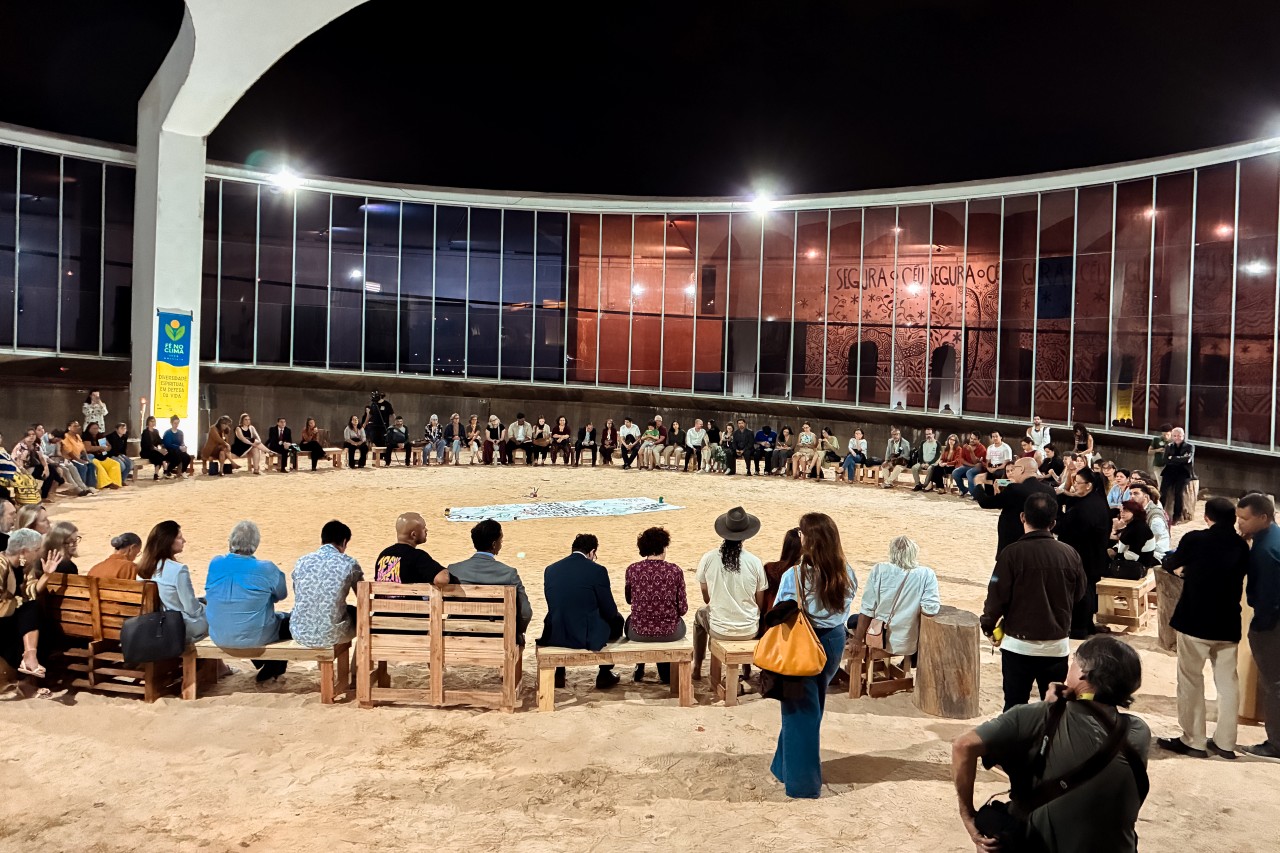Social Participation in COP30 is Expanded through the Brasil Participativo Platform
The process is made up of areas of action, such as the submission of solutions and the mapping of activities

By Rafaela Ferreira | COP30
The civil society participatory process for COP30 was launched this Wednesday, August 27, with the aim of ensuring that ideas, solutions, and mobilizations from civil society are reflected in the spaces of discussion and decision-making at the Conference. The national and international participatory process is coordinated through the Brasil Participativo platform, a public citizen engagement tool maintained by the Brazilian Federal Government.
The initiative was launched during the COP30 Seminar « Spaces for Social Participation », held this Wednesday. On the occasion, Minister Márcio Macedo, from the General Secretariat of the Presidency of the Republic, emphasized that the 30th Climate Conference is already underway, primarily through self-managed discussions led by civil society. “President Lula chose Amazônia for the symbol it represents. This will be the first time that Amazônia and its peoples will speak to the COP,”he highlighted.
Representing the COP30 Presidency, Luciana Abade, General Coordinator of Mobilization, stated that this is the first time the Climate Conference has a dedicated pillar for social mobilization. “We know that mobilization has always existed at the Conferences, but this is the first time it is truly a pillar, because the idea is for this to genuinely be a COP with social participation,”she said.
The participatory process, coordinated through the Brasil Participativo platform, is made up of different areas of action, one of which is the submission of solutions. This allows anyone to present proposals related to the thematic pillars of the conference, provided they are connected to the Brazilian context. In this area, the five most-voted solutions in each thematic pillar will move on to the next stage, where they will be reviewed by the Selection Committee and may be included in the Final Civil Society Report for COP30.
Among these, the Selection Committee will nominate one proposal per thematic axis to be presented at COP30 in Belém, with the aim of ensuring meaningful listening and real influence from civil society in the process.
The platform also includes a space where organizations, social movements, networks, and collectives can register their activities—such as events, workshops, gatherings, cultural interventions, debates, assemblies, and discussion circles—that will take place prior to the conference. The registered activities will appear on the civil society mobilization map, and those receiving the most support by the pre-COP (October 13 and 14) may be featured on COP30’s official channels.
There is also space for actions related to the Intercouncil Forum and for sharing solutions from Voices of Amazônia.
Global Ethical Stocktake
The participatory process also allows for the registration of contributions to the Global Ethical Stocktake (BEG, in the Portuguese acronym). The Global Ethical Stocktake Dialogues propose a collective and in-depth listening to the moral and civilizational dilemmas that the climate crisis imposes on humanity. Inspired by the process of the first Global Stocktake of the Paris Agreement, which in 2023 assessed the progress and challenges in implementing the climate treaty, the Global Ethical Stocktake seeks to complement technical evaluations with reflections on the ethical implications related to climate negotiations.
The dialogues are led by the Circle of the Global Ethical Stocktake of the COP30 Presidency and aim to bring to the event a global synthesis of contributions to accelerate the implementation of actions aligned with the Paris Agreement, especially the commitment to limit the planet’s average temperature increase to 1.5ºC. To support this collective effort, any group — anywhere in the world — can organize a self-managed dialogue.
What are the social participation initiatives?
Social participation in COP30 is one of the key expectations of civil society, both within and beyond Brasil. Questions regarding the planned structure in Belém, the activities aimed at civil society, the accreditation process, and the strategies for joint action between the government and civil society to ensure a diverse, qualified, and effective presence in the official spaces of the Conference are central to the ongoing discussions.
In addition to social participation through Brasil Participativo, organizations and entities engaged in climate action and sustainable development can express interest in setting up pavilions in the COP30 Green Zone until August 31. The Green Zone will feature thematic areas dedicated to crucial topics for a sustainable future: climate finance, innovation, biodiversity, youth, clean technologies, among many other relevant subjects to advance discussions on the impacts of climate change.
COP30 will also feature panels in the Brasil Pavilions, a space for presenting proposals, serving as one of the ways for society to participate in the event. Proposals may be submitted until 11:59 PM on August 30. The pavilions will bring together the Brazilian and international communities for dialogues on addressing the climate emergency, the 30 strategic objectives of the Action Agenda, the Nationally Determined Contributions (NDCs), and the Climate Plan, as well as hosting cultural performances and exhibitions related to the conference themes.
The COP30 Action Agenda was designed to bring together the essential elements outlined in the Global Stocktake of the Paris Agreement (GST), launched at COP28 in Dubai. In total, six pillars form the agenda proposed by the Brazilian presidency of the Conference, with 30 commitments — a systematization of the 490 topics proposed in the last ten action agendas of previous COPs. The aim is to draw the attention of those who implement climate initiatives in practice, such as local governments, civil society, the private sector, and academia.
